Where SukkhaCitta stands today is the result of a founder who dared to buck trends to follow her dreams. When Indonesian social entrepreneur Denica Riadini-Flesch discovered that rural women were hardly earning a wage as garment and textile workers, she took it upon herself to effect change.
Indonesia is one of the world’s largest clothing manufacturers, but fewer than two per cent of its garment and textile workers, who are mostly women, earn a living wage. “These women, working from home, are the most marginalised segment of the global fashion industry as their labour is outsourced through layers of middlemen,” she explains.
Struck by the plight of these women, she set up social enterprise SukkhaCitta, which is Sanskrit for “cloth of joy”. It pays these women a fair, living wage to create sustainable clothes sold through its website and to retailers.
As she got to know the villagers, or ibus as she calls them, Ms Riadini-Flesch was filled with even greater resolve to improve the lives of their families and communities. SukkhaCitta also invests in their future by building schools where they can mentor and pass on their expertise to the next generation. And this innovative model ensures the longevity of traditional textile crafts while providing a sustainable livelihood for the community.
However, SukkhaCitta's commitment to sustainability extends beyond its social impact. The enterprise collaborates with local, small-scale farms to grow cotton and plants for dyes using eco-friendly practices that maintain biodiversity and improve soil health.
“SukkhaCitta has never been about the brand or the clothes. It’s always been about how we change the way clothes are being made – all the way to the farming methods – so that we can ensure each of our choices can support the lives of those who made the clothes while at the same time, healing our planet,” says the 33-year-old, who was in Singapore recently to receive the Rolex Awards for Enterprise at a ceremony held at The Fullerton Bay Hotel.
By controlling the entire supply chain, from the cultivation of raw materials to the creation of the final product, Ms Riadini-Flesch is setting a new standard for responsible fashion production that resonates with the current climate of consumer consciousness.
A recent survey of Singaporeans revealed that over a third had bought at least one eco-friendly and socially responsible clothing or accessory item and would be more likely to purchase products with sustainability labels. Ms Riadini-Flesch’s social enterprise is at the forefront of this shift, proving that fashion can be both ethical and stylish.
So far, the women working with SukkhaCitta have increased their earnings by 60 per cent on average, frequently leading to dramatic changes in the gender roles in their communities. As the women take charge of their households’ finances, they usually invest in the nutrition and education of their villages’ children, including girls, benefiting future generations.
“In our cotton-farming village, girls will generally have up to primary school education. We support the farmers by offering scholarships to their children so that the young girls can actually go on to university,” says Ms Riadini-Flesch.
“When you educate and empower the mothers, you actually lift the entire generation up. She doesn’t have to worry about survival or the day-to-day issues so she can really think about the future. What dreams can she have for her children?”
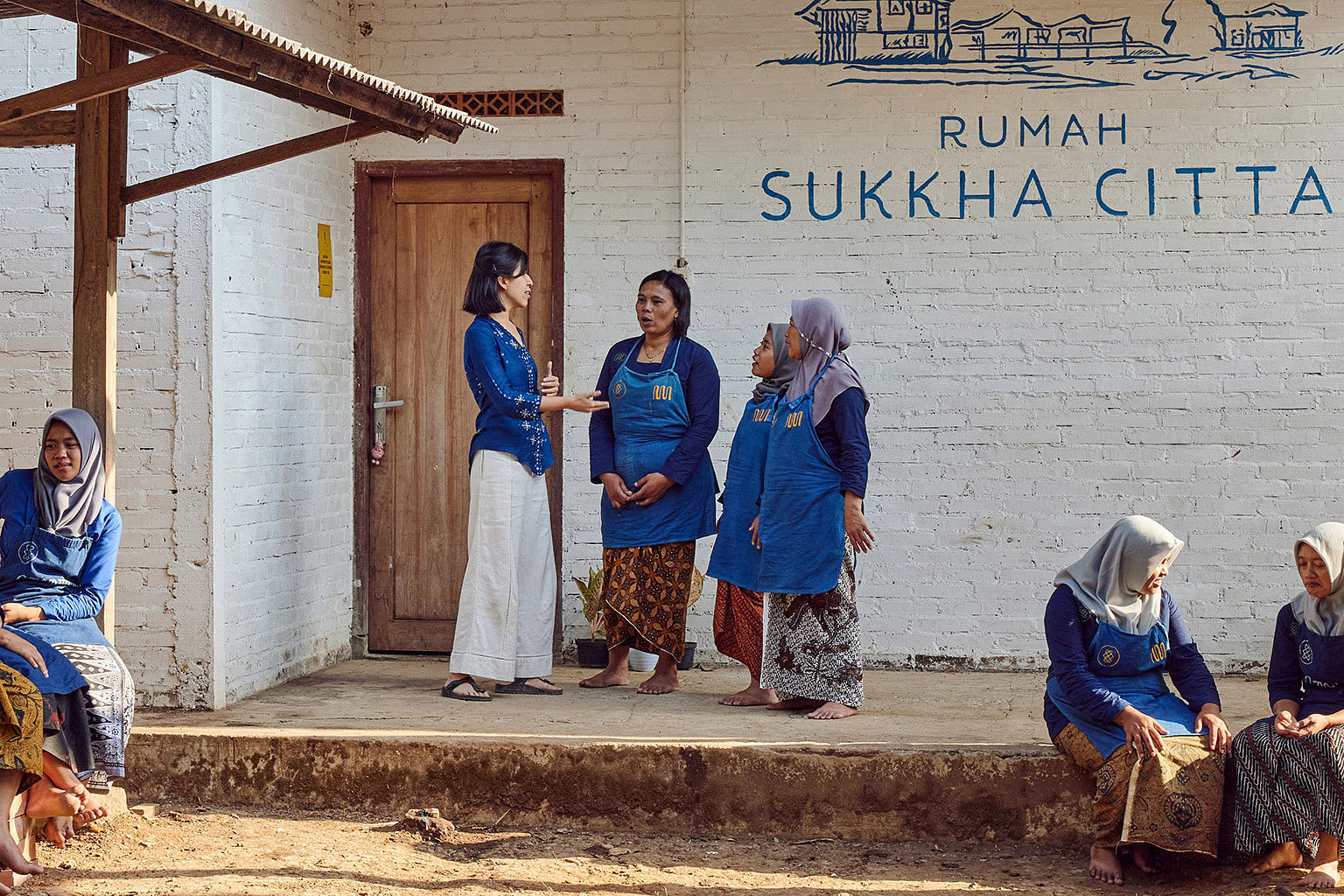
With SukkhaCitta’s track record and potential to create sustained change, Swiss watchmaker Rolex named Ms Riadini-Flesch as one of its five 2023 Rolex Awards for Enterprise Laureates in February. The award will enable SukkhaCitta to purchase extra land to construct a building for 30 more artisans, renovate an existing batik school, better teach batik skills in four villages, and more.
Ms Riadini-Flesch says: “With the Rolex Award, we can amplify our model by scaling physically and digitising our curriculum so that we can reach many more women across Indonesia. The women in our clothing industry have been invisible for far too long, and this Award is a great opportunity to help them feel seen and valued again.”
Uplifting lives, regenerating land
She started SukkhaCitta in 2016 after trying to assist the women in a different way. After she left Indonesia to study as a development economist in the Netherlands and worked for almost two years as an assistant professor at Rotterdam’s Erasmus University, she returned to her home country to be a consultant for the World Bank’s social development programme.
As she travelled to villages and met the women living in them, however, she realised that they wanted fair payment for their work, not aid. Although they could spend up to a month making a garment using traditional techniques such as batik, which relies on wax and dyes to create patterns, middlemen serving their areas were forcing them to accept meagre payments.
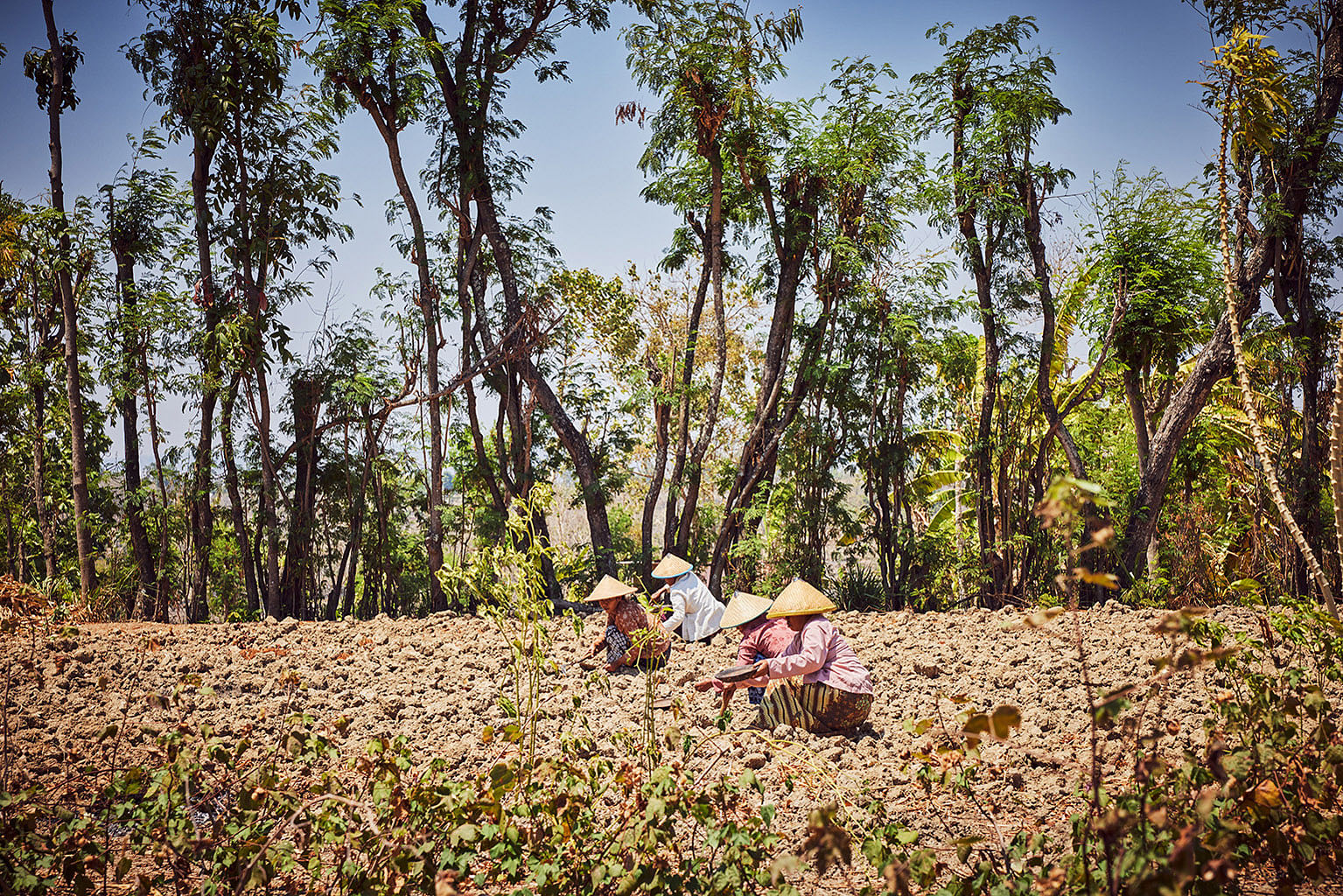
SukkhaCitta, which is built on a “farm-to-closet” philosophy, cuts out these middlemen. It consults the women to set prices for their products that will give them a living wage – enough to put food on the table for a family of four, send the children to school and set aside some savings, for example – and pays them either a daily salary or for each item.
The social enterprise also builds craft schools where women learn traditional agriculture and textile production methods alongside business skills to better monetise their work.
In the earlier days before the schools were started, many from the younger generation left for the cities to seek employment because they could not earn enough to survive on their traditional products or services.
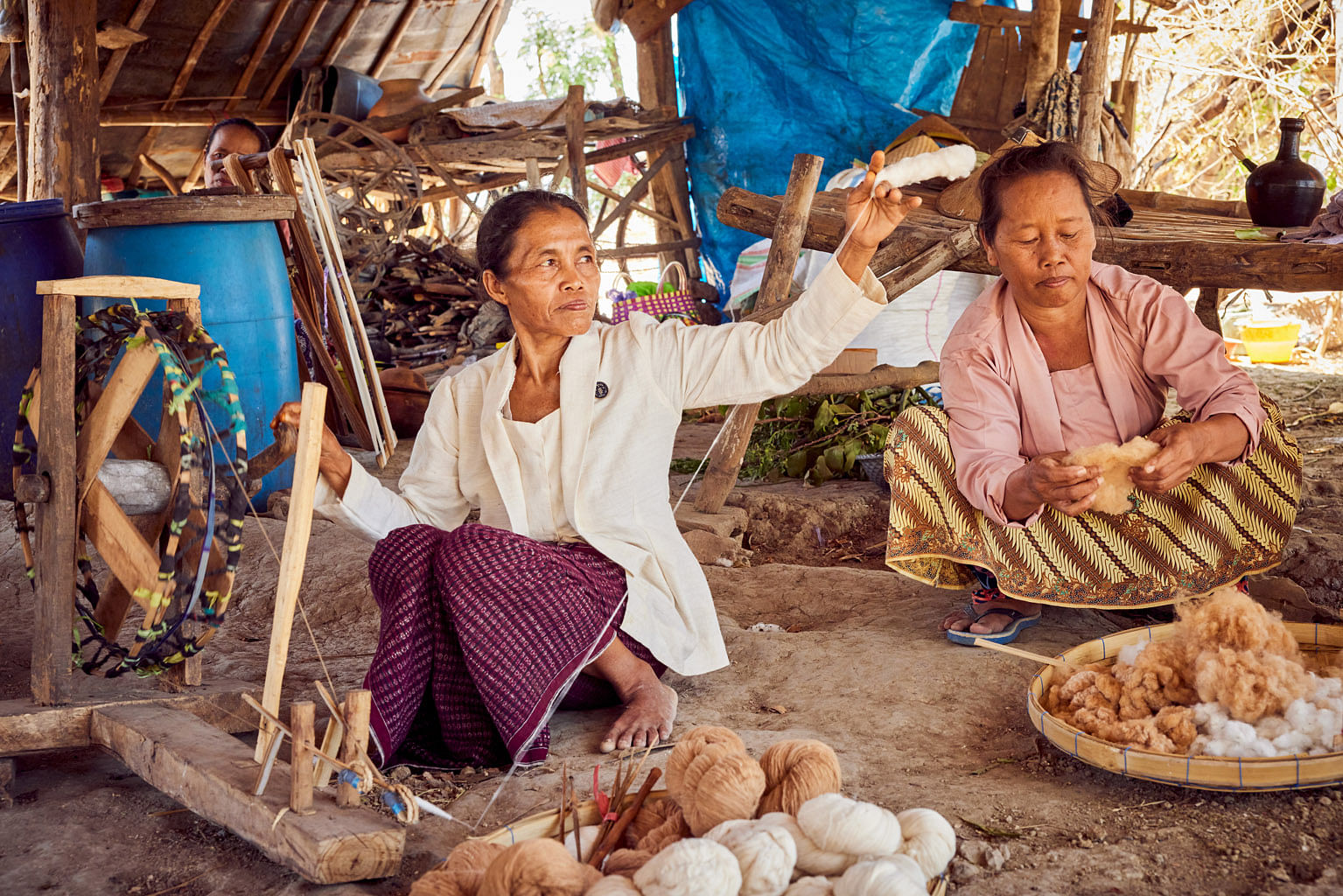
These youths would take on minimum-wage-paying jobs like clerical or cleaning work, according to Ms Riadini-Flesch. The downside to that is the loss of traditional craft knowledge – they will not be able to pass their skills down to the next generation and she estimates that it will take just two generations for the skills and cultures to be lost.
With Rumah SukkhaCitta – what the schools are called – those with more experience can take on those with less as apprentices, ensuring the longevity of Indonesia’s heritage crafts. To date, SukkhaCitta has set up four schools, in Java and Bali.
With the fashion sector routinely using synthetic dyes that are harmful to the environment, and almost all of Indonesia’s cotton being imported or harvested from huge monoculture farms that spray harmful pesticides and herbicides, Ms Riadini-Flesch sought sustainable alternatives, and found solutions in the wisdom of a local, older generation of cotton farmers.
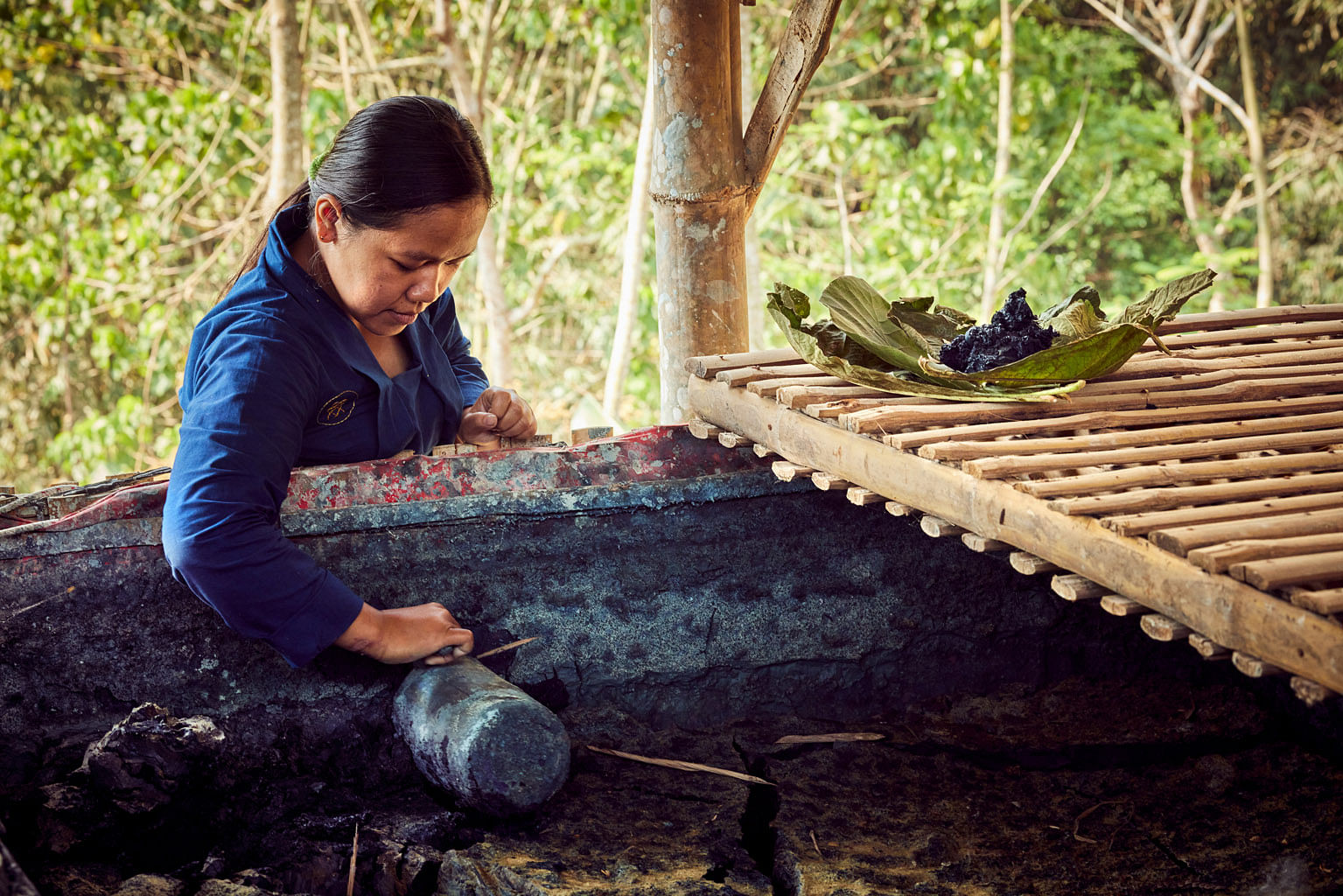
She and her team now work with smaller farms to deploy an established regenerative farming system called tumpang sari, or multiple cropping. Unlike monoculture farms that plant only one crop and thus extract the same nutrients from soil over time, degrading it, this system plants cotton surrounded by other crops such as chilli, pumpkin and papaya.
The diverse ecosystem keeps soil healthy and is naturally resilient against pests. SukkhaCitta also makes natural dyes from some of the plants. “Cotton is called the dirtiest crop due to the heavy use of pesticides, but it doesn’t have to be that way. We have also prevented over three million litres of toxic dyes from being dumped into rivers by using natural dyes,” she says.
Reaching 10,000 people by 2030
Today, SukkhaCitta works directly with more than 400 craftspeople and smallholder farmers, having an impact on over 1,500 lives. It is the first Indonesian fashion brand to be a certified B Corporation, a globally recognised certification for companies that meet high standards of social and environmental impact, developed by American non-profit group B Lab.
The firm also won the SEED Low Carbon Award conferred by the United Nations Environment and Development Programmes and International Union for the Conservation of Nature, for its role in promoting sustainable agriculture, while Ms Riadini-Flesch was chosen as one of Forbes magazine’s list of 30 leaders and entrepreneurs under 30 years old to watch, in 2019.
With the Rolex Award’s support, she aims to triple SukkhaCitta’s number of craft schools and develop an app that will extend its training, including in regenerative farming, into Indonesia’s most remote regions, among other plans to improve 10,000 lives while regenerating 1,000 ha of degraded soil by 2030.
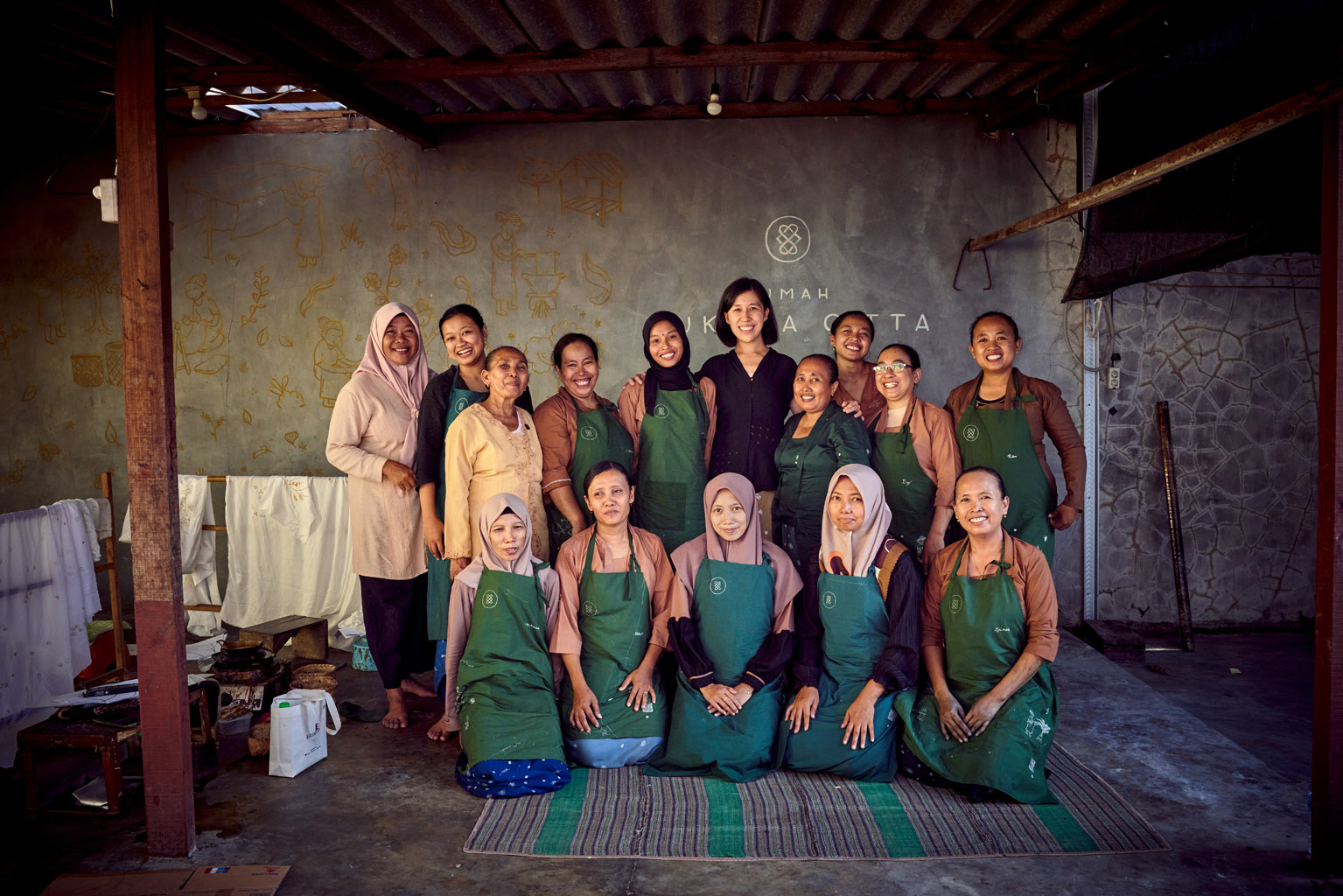
Acknowledging that it has been “progressively harder to grow things”, Ms Riadini-Flesch says: “Last year in Indonesia, we had such a hot and long dry season with erratic rainfall that many communities had problems with food security.
“We need to find ways to help them adapt to climate change and to me, regenerative farming is a big part of that. If we plant multiple crops, and one or two fail, you still have the others to fall back on.”
The Rolex Awards are also part of the wider Rolex Perpetual Planet Initiative launched in 2019, which aids people and organisations that harness science and technology to understand the world’s environmental challenges, and to develop pioneering solutions that address the issues and restore balance to fragile natural ecosystems.
The Initiative has a diverse and growing portfolio of more than 20 partnerships, including with organisations such as Rewilding Argentina and Rewilding Chile, which protect landscapes in South Africa, Coral Gardeners, which transplants resilient corals to reefs, and Great Spine of Africa expeditions that explore the continent’s major river basins.
Rolex also supports organisations and initiatives that foster the next generations of explorers, scientists and conservationists through scholarships and grants, such as the Our World-Underwater Scholarship Society and The Rolex Explorers Club Grants, and the Explorers Club’s Global Exploration Summit, which gathers world-leading explorers annually.
The Rolex Awards’ 160 Laureates to date include Australian marine scientist Brad Norman, who runs an online database that tracks sharks as part of his efforts to help protect them, and British glacial microbiologist Joseph Cook, who is researching how microorganisms in ice sheets and glaciers in the North and South Poles and mountains speed up their melting.
Ms Riadini-Flesch believes that joining their ranks will take her social enterprise to the next level: “SukkhaCitta is not here to become the biggest fashion brand in the world. What we need is a beacon of hope.
“We need to show that it’s possible to run a successful business that runs on commercial merit by empowering women, restoring biodiversity and funding indigenous communities through regenerative farming programmes. Rolex and its Perpetual Planet Initiative will help us to do exactly that.”
We The Earth is a partnership between The Straits Times and Rolex and its Perpetual Planet Initiative. Ms Denica Riadini-Flesch, a 2023 Rolex Awards for Enterprise Laureate, is a stellar example of the many individuals who are doing their part to solve the issues Earth faces.

